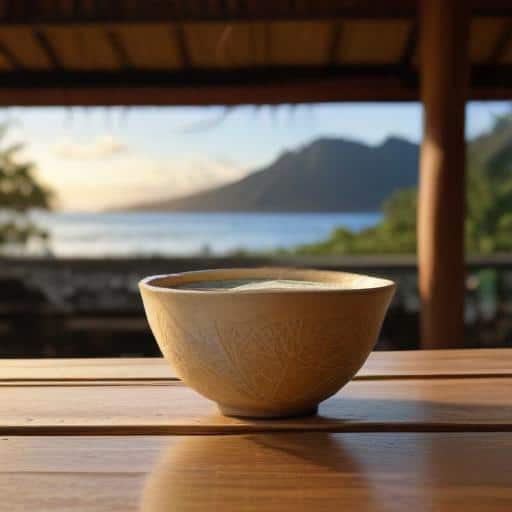The former chairman of the Vanuatu Kava Industry, Michael Louze, has expressed optimism regarding the 22 percent tariff imposed by the Trump administration on Vanuatu products, suggesting that it may inadvertently benefit Vanuatu’s kava exports to the United States. Louze highlighted that Vanuatu’s kava could gain a competitive edge over Fiji’s exports, which are subject to higher tariffs of 22-30 percent. He noted that Vanuatu currently offers kava at a lower price point, being 10 percent less expensive than Fiji’s kava, enhancing its appeal to U.S. importers facing the increased costs associated with Fiji’s products.
Louze’s business exports over 40 tons of kava to the U.S. annually, and he reassured that the new tariff would not heavily impact local farmers. “Kava is currently the main product that Vanuatu exports to the U.S. market, and it serves as a crucial source of income for people in rural Vanuatu,” he stated.
While Louze remains optimistic, the Department of External Trade has voiced concerns about the effects of the tariff on Vanuatu’s overall export capabilities. Government officials are analyzing the situation to mitigate the impact of these tariffs, as the country’s economy heavily relies on kava as a primary export.
Economist Peter Judge shared insights that emphasize the growing significance of the U.S. market for Vanuatu kava. He highlighted that up until July 2024, kava accounted for 79 percent of Vanuatu’s goods exports. Judge mentioned that a substantial tariff on Chinese kava—54 percent—could further steer U.S. importers towards sourcing more directly from Vanuatu. However, he underscored the need for significant investment to enhance the quality and output of kava to meet U.S. market standards.
The potential for U.S. consumers being receptive to higher-priced kava amid these changes remains uncertain. If demand is price-sensitive, exporters may have to absorb some of the costs, impacting their profit margins. However, with around 75 percent of kava exports already going to other countries, the overall effects on Vanuatu’s kava industry may be limited.
Despite the challenges posed by the tariffs, there is cautious optimism that this situation could pave the way for the Vanuatu kava industry to capture a more significant share of the U.S. market, provided that investment in production and quality assurance is prioritized. As the global landscape shifts and uncertainty persists, Vanuatu’s proactive steps in adapting to these economic changes can foster long-term sustainability in the kava sector, ultimately benefiting local farmers and communities.

Leave a comment